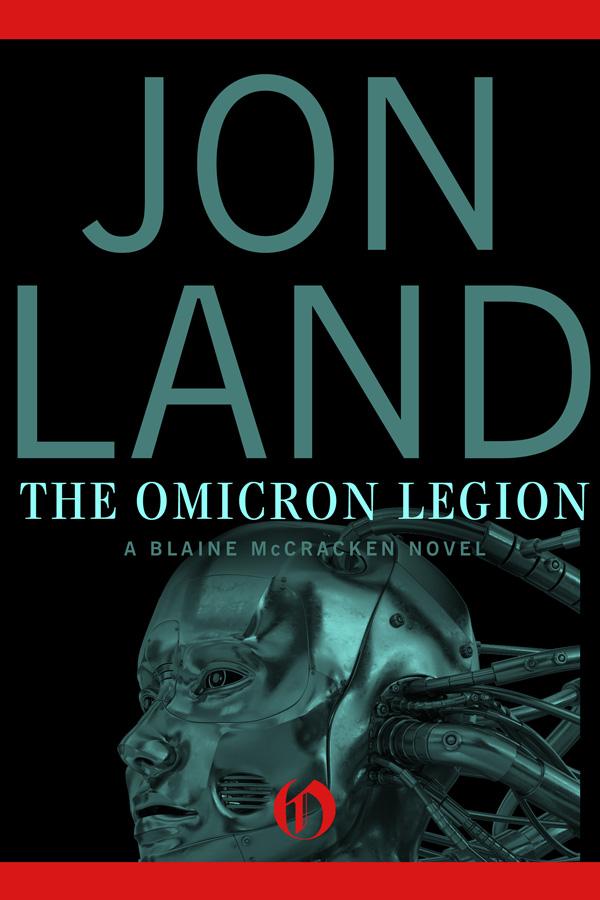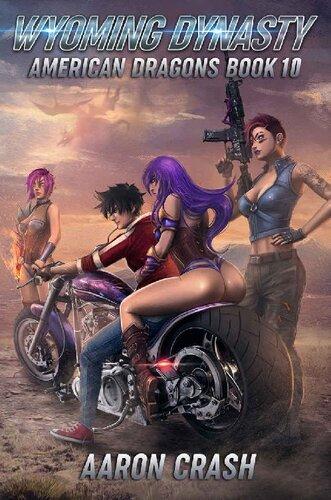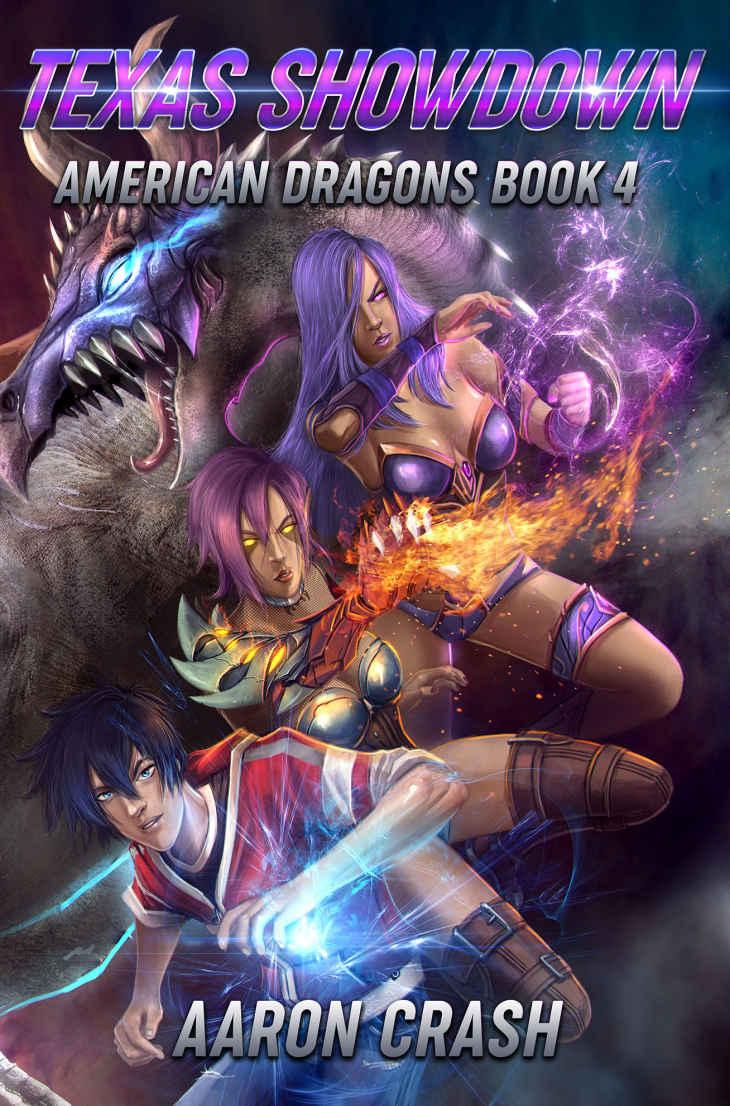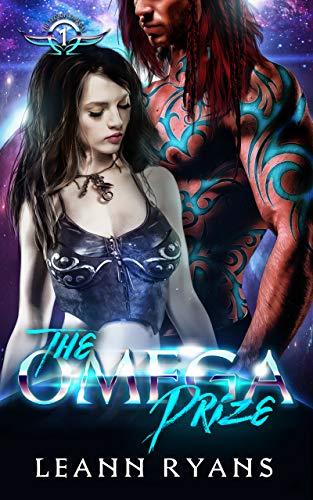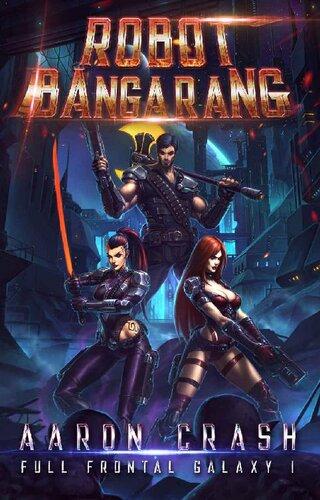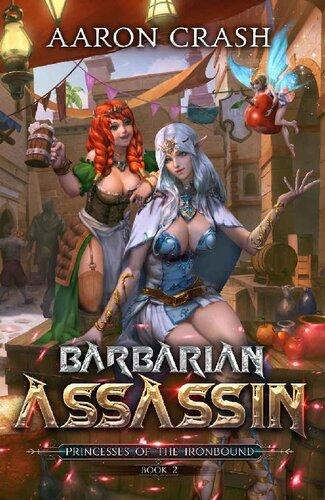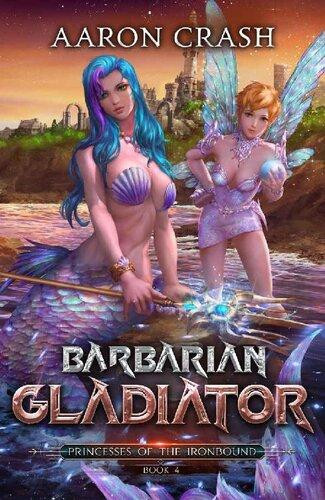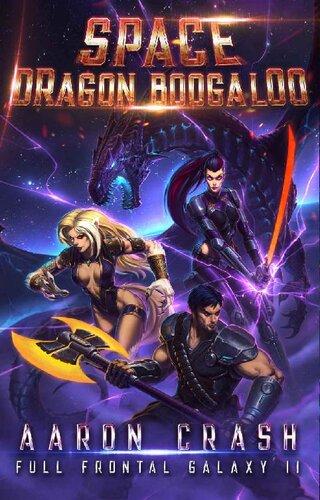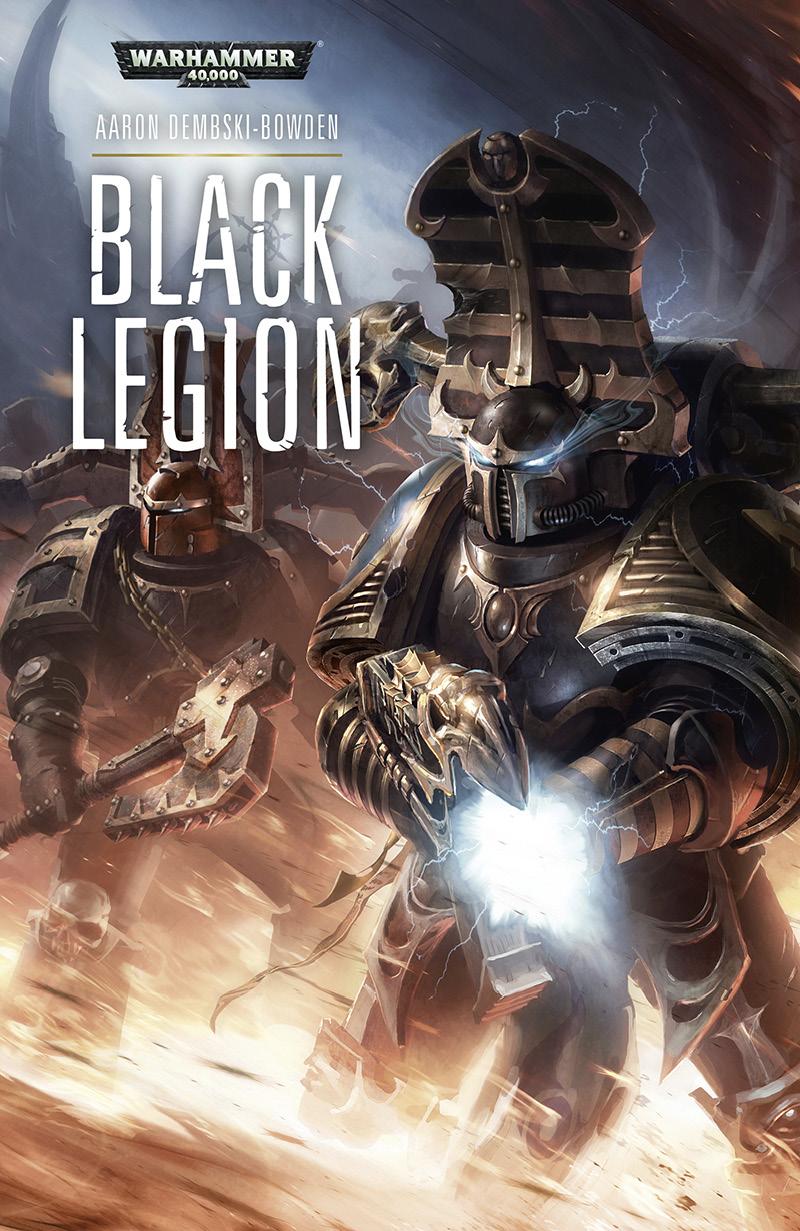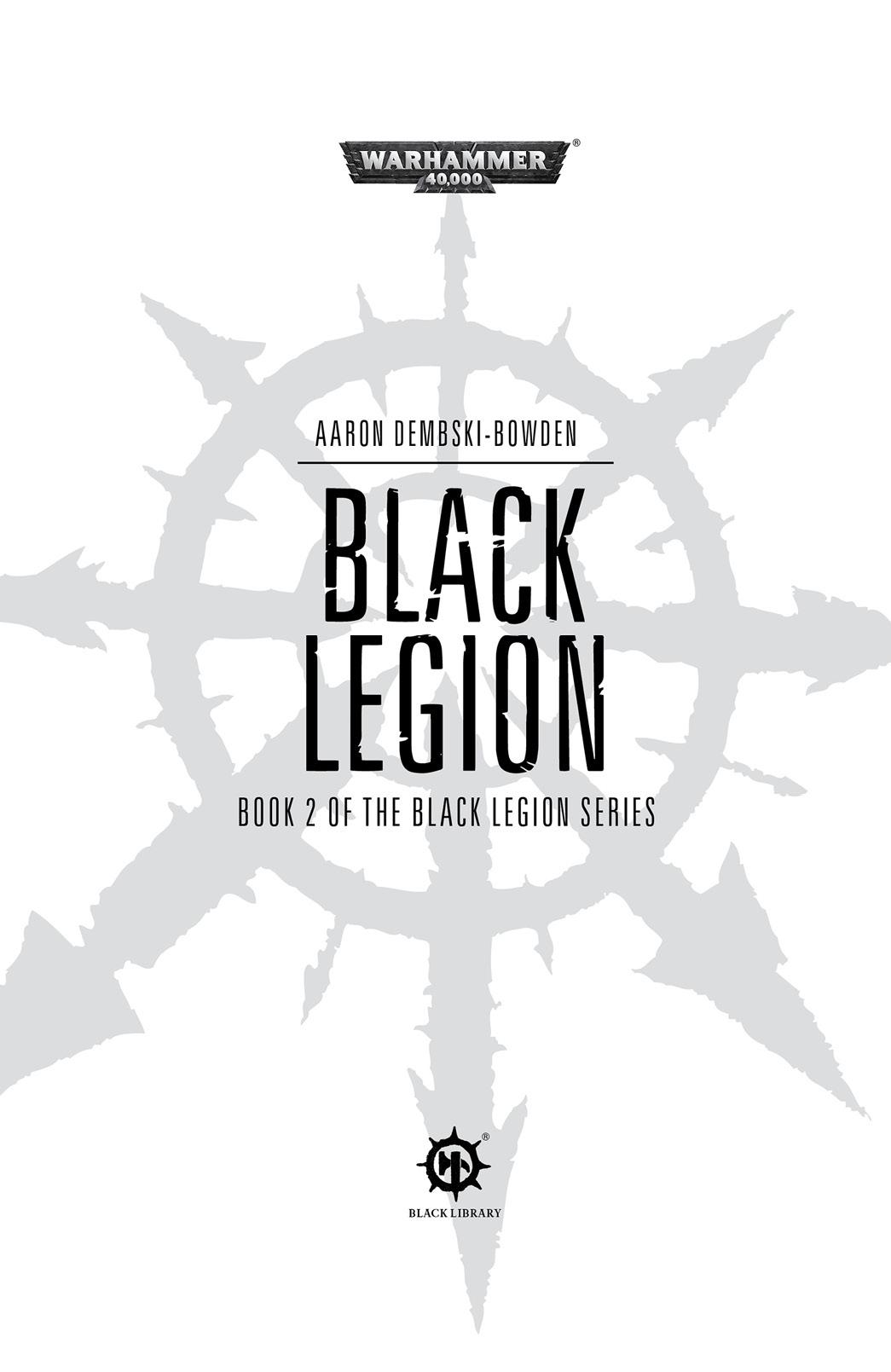TERRA
The Gods hate us. I truly believe this. They need us. We are their fuel. Our thoughts and deeds are what give them life. They are us, in the most literal sense. Every nightmare, every wound, every death – it all feeds them, it all fuels them, forms them. And no, they are not individual, reasoning entities as a sentient soul could ever comprehend. They are unreasoning forces, emotion and action given etheric shape, burning forever behind the curtain of corporeality.
But they hate us. I am convinced of it.
My brothers do not agree with me in this matter. Lheor believed they were mindless and without intent, that they could not hate us because they could not hate, nor love, anything. Ilyaster believes they are generous – even kind – but one must know one’s own desires when dealing with them, and see the strength in even the most cursed gifts that they give. Telemachon sees them as distant, fascinating creatures, preferring his own intimate and secret forms of faith. Sargon believed, with all the fanaticism of any fervent worshipper, that the Gods grant us what we deserve, not what we desire. He used to insist that it is the purpose of our existence to live up to what the Gods wish us to become. That our blood and sweat must ever be spent in reaching the potential that the Pantheon sees within us.
Even my dear, misguided brother Ahzek believes that they are presences –rational, irrational or otherwise – that can be outfought and out-thought. Ahriman’s belief could charitably be called optimism, or harshly considered to be ignorance. I suspect it is that terrible and compelling blend of both: naïvety.
But I am convinced that they hate us. They laugh at our dreams. They mock our ambitions. They fight us to enslave us, knowing they need us. They crave champions for their causes, elevating us, offering more – always
more – to achieve our goals, only to abandon us and destroy us when we act against their whims. This is more than simple malice. Malice is crude and practically instinctive, a thing even beasts can comprehend. No, this is spite, and spite requires consciousness, emotion, the capacity for bitterness and wrath.
But they reserve their fiercest hatred for Abaddon. Oh, how they despise him. They hunger for him, fighting each other for the honour of attracting his ironclad soul into their clutches. The Pantheon hates him the way parasites or addicts resent that which sustains them. Without Abaddon, they have no hope of victory. If he would only choose one of them, if he would only commit his destiny to one of the Gods, it would bring the Great Game of Chaos to its final moves.
But then Abaddon would lose. He fights not for the Pantheon, those creatures that hate how they need him, nor does he care about their Great Game. He fights for himself, for his own ambitions, and for the brothers at his side. He fights for the Legions cast aside by the Emperor. He cares about the Imperium we built with our blood, sweat, bolters and blades – and he wants it back. He cares about returning to the godling that gave us life and seeing the Emperor bleed for all His failures. He cares about brotherhood, the unity of the damned, the wrongs that were done to all of us.
And therein lies the root of the Gods’ spite. They beseech him. They beg him. They betray him in spite and then crawl back in the hope that he will bow to them.
But the power is ultimately Abaddon’s, and that is what the Gods can never forgive.
His greatest strength is also his deepest flaw. Because he will not bow to the Pantheon, they will forever betray him and work against his ultimate triumph. It is said that Abaddon’s destiny is an ouroboros, the serpent devouring its own tail, as the Pantheon chases a submission he will never give, and he chases a triumph that may never come.
And so I tell you this, as true as I have ever been in my entire life: Abaddon’s entire existence is devoted to breaking the cycle. We, his brothers, are his instruments in forcing fate onto a new path.
And thus, I am here. Captured, if you believe my gaolers, though I came to their door and surrendered my weapons of my own will.
I am still blind.
Strange, the things you can become used to. The darkness that stole my sight weaves treacherously around my other senses, tainting them, leaving them unreliable. Even time is a traitor. It no longer plays faithfully through my mind. Eyeless and chained in place, the only way to measure the passing of time is by the beat of my twin hearts. Yet that rhythm becomes deceptive when silence is one’s only companion; minutes can malform into hours, yet hours may pass as wayward moments.
How long have I been here on Terra? How long have I called this cell home? How long has my only company been the archival servitor that shares this space?
Why do you not speak, Thoth? Because you will not, or because you cannot? I hear the soft rhythm of your breath, so I know you are not fully automated. Yet your quill scratches on and on, committing these words to parchment. You are mind-reaved to a state of simplicity, perhaps, monotasked to avoid the moral threat I represent. Is that it?
I am wasting my breath with these questions.
I know what your masters want. They wish for more, always more, more recollections and reflections of an era that was myth to their society thousands of years before any of them were born.
I am not without pride. I am not immune to the temptation to lie, to reweave past failures and injustices as victories for the sake of my own esteem, to say that the Black Legion’s rise was so inevitable, so born in righteousness, that we ascended with nothing but the acclaim and awe of our brothers and cousins. Yet for all my faults, I am not a petty soul, and there is no gain in spinning lies for Imperial ears.
This, then, is the truth. The Black Legion’s history is drowned with blood, much of it our own. If it was easy to despise the dying Sons of Horus for their treachery and weakness, it was easier by far to loathe their reincarnation for its strength and defiance. Put simply, we refused to die. And oh, how our brothers and cousins hated us for it. How they tore across the Eye, hunting us for the twin sins of drawing breath and seeking to fight fate.
Sometimes we fought them. Often, we fled. Those were not days of pride, but nor were they days of outright defeat, for even as we fled from the vengeance and jealousies of our kindred, there were those that sought us out with a mind to fight alongside us.
Our ranks swelled, timeless night by timeless night. At first almost every recruit was another exile, another wanderer, another disgraced or disgusted soul that came to us in search of a new beginning. Some wished to cleanse themselves of the past and stand beneath a new banner. Some wished to taste once more the purpose of brotherhood after the endless battles within the Eye had broken their old bonds. Some sought to deceive us. They were purged, fed to the creatures that writhed in the dark of the Vengeful Spirit’s deepest decks.
Soon we recruited not lone warriors or squads, but warbands and warships. Time and again, Abaddon scattered us across the Eye in divided forces, bringing word of his return to his beleaguered Legion, offering amnesty and alliance to any that wished to join with us. Most of our new loyal brethren were the survivors of the shattered Sons of Horus. They came for one reason above all: survival. A dying Legion on the edge of extinction was suddenly presented with three of the most iconic symbols of its former strength. The Legion Wars raged on, yet here was Ezekyle Abaddon, here was Falkus Kibre and here was the Vengeful Spirit. Such an echo of their bright past was surely their greatest chance of survival in a realm that still hungered for their blood.
Exiles and idealists from every Legion joined us. Vortigern brought his solemn and wayward Lost Lion warband into our ranks. Amurael Enka came next – a brother who has had every chance to betray me across an eternity and yet never once wavered in his loyalty. Then Chariz Terenoch, the Wonderworker, who forged the blade I carried after the destruction of my axe Saern. He was the first of my former brothers among the Thousand Sons to surrender his Rubricae to my mastery.
Then came Zaidu and his vile cannibals, who inevitably fell into Telemachon’s favour, followed by Delvarus and his brutal Secondborn, once Legion brothers to Lheor and formerly the guardians of the great warship Conqueror, flagship of the World Eaters.
None of our foes could overwhelm the Vengeful Spirit head on. Nor was Ezekyle content to exist for survival’s sake and let only stragglers and exiles swear oaths of fealty. He wanted more. He wanted a Legion. Not one of the eighteen Legions of the Great Crusade; his vision was set higher, fou nded in the principles of rebirth. He wanted the first and only Legion of the Long War.
As tribal conquerors have done since the ages of antiquity, we offered our foes a choice: serve us or be destroyed. Those that chose to swear allegiance to Abaddon were permitted to join our fleet or garrison our strongholds, with some of those humbled warlords even joining Ezekyle’s inner circle. Few chose destruction, though true to our word, we let none survive once they had chosen defiance.
Through blood and fire we raised ourselves to a place of, if not pride, then at least less dire shame. We commanded a fleet. We were the lords of thousands of warriors, each one sharing our ambitions to be more than we had been. Though we were still hunted by our rivals – and none pursued us more bitterly than the last living Sons of Horus who spat at us for corrupting their legacy – we no longer lived with the blade of extinction against our throats.
Abaddon’s aggression bordered upon obsession, almost into the realm of madness. He committed us to battle after battle, not only to crush those that offered defiance but also to come to the aid of beleaguered warbands that had sworn oaths of alliance. The Sons of Horus suffered worst of all, still plagued as they were by the shame of their defeat at Terra. Many were the times we tore through the formations of predator fleets hunting Sons of Horus warbands, fighting them back long enough for their prey to either flee or to stand with us against their attackers.
There was precious little luck to this. Abaddon courted the services and loyalty of sorcerers and seers above almost any other recruits. Ashur-Kai, called for so long the White Seer and now navigator of the Vengeful Spirit, found himself in a position of incomparable value. Nor was he alone – a coven of prophets and oracles formed, and when Abaddon’s seers whispered, he took heed of every word.
And it worked. Ezekyle Abaddon, who had been First Captain of the XVI Legion and a renowned hero of the Imperium, became a champion to the Sons of Horus. Unprecedented numbers of them abandoned the green ceramite of their old Legion and adopted the colourless distinction of our nameless warband, fighting again beneath his banner. First for survival, and then, as we all believed, for something more.
That most potent and pure of motivations.
Revenge. Vengeance bought at any price.
I, too, had changed. I no longer suffered the nightmares of wolves. The
somnolent reflections of my burning world had receded, and with them faded the helpless hatred that had tasted a little too much like fear. Memories of grey warriors no longer howled through my mind, just as Gyre no longer walked by my side or guarded my slumbering form. Gone was the Fenrisian axe I carried into battle. Gone too was my armour of cobalt and polished bronze. The ceramite I wore was colourless, edged in dull metal. I was remade. No longer a soldier of the Great Crusade or a heretic of a failed rebellion, I was a warrior of the Long War – as I have been every day since, as I will be until my final breath. Perhaps that last gasp of life will be within this very cell and it shall taste of this stagnant air. I don’t know.
This is what I do know.
I am he who tells of the rage of angels. I am the emissary that speaks the blasphemies of a false god’s exiled sons.
I am Iskandar Khayon, called Khayon the Black, Breaker of the Crimson King, Raider of Graves, Lord of the Ashen Dead, Third of the Ezekarion, Lord Vigilator of the Black Legion. I am the judge of my brothers’ sins and the taker of traitors’ heads. I am what my brother needed me to become –now, as ever, I am his blade at the throats of his foes. I am a blinded, tortured prisoner in Inquisitorial shackles. I am the Herald of the Crimson Path.
The seeds of our conquest were born in the fallow ground of Abaddon’s own ambition, but we cannot ignore the whips that cracked against his back. Let us speak, then, of Moriana and Thagus Daravek.
Daravek, the battle-king and Lord of Hosts, remains my greatest failure. Few others have come as close to killing our dreams of vengeance as Thagus of the Death Guard, at the head of his armada.
And as for Moriana… Look for that name in your own ancient records, inquisitors. You will find her there, secreted within the deepest shadows. Doubtless her presence spread the same poison among your roots that it spread among ours.
Let this archive chronicle the beginning of what the Imperium now calls the First Black Crusade. I will tell you of the roots of the war and the first bloody battle when at last we broke free of our warp-wrought prison, when an ancient knight-king fell into darkness and when my brother sought to claim the sword fated to end an empire.
I swear to you on whatever tattered scraps remain of my soul, every word
on these pages is true.
From shame and shadow recast. In black and gold reborn.
‘…Daravek Thagus Daravek he bled us he butchered us even Ezekyle didn’t know the threat we couldn’t have known it is Khayon’s fault Khayon is to blame my brother Khayon he could not do it he could not do as he was ordered Khayon was blind he could not see the traceries of fate and he would not believe…’
– from ‘The Infinity Canticle’, sequestered by the holy order of His Imperial Majesty’s Inquisition as an Ultima-grade moral threat. Purported to be the unedited, raving confession of Sargon Eregesh, Lord-Prelate of the Black Legion.
WEAPONS
‘Khayon, I know you’re here. I can smell your mongrel stink.’
Daravek’s voice was a rusted hacksaw, a thing of flaky corrosion and rotting edges. ‘Show yourself. Let us finish this.’
He was talking a great deal, almost always a sign of desperation in a warrior. I dared to think that control of the situation was slipping through his fingers, and challenging me like this was the only way he could try to reassert his dominance.
Around us, above us, sirens were crying out their warnings. They had been doing so for several minutes. In Daravek’s defence, he had done very well to last this long.
But I had him. At last, I had him. Tonight I would bring his bones to my lord Abaddon.
Thagus Daravek was an immense, bloated monster, swollen by the favour of his patron Gods. Wet filth crusted the overlapping plates of his battle armour, sealing the seams with undefined biomechanical vileness. The ceramite around his torso and one of his legs was warped with diseased swelling and fusion of the flesh within, and horns of bronze thrust through punctures in the mangled armour. The bronze spines were veined, somehow alive, and bleeding vascular promethium. The vulture’s wings that rose in ragged majesty from his shoulder blades were spindly, trembling things despite their size, the feathers and tattered bones burning in heatless waves of warpfire. Ghosts, or things that looked like ghosts, reached out from those flames.
‘He is here,’ Daravek said, deep and low, as he paced. His jaundiced eyes drifted from warrior to warrior among his elite guard. Blood decorated his face from the slaughter so far. It bubbled, slowly dissolving on the active blade of his axe. ‘I know he is here, riding within your bones. Which one of
you was weak enough to fall to the mongrel magician?’
Even as I clenched my consciousness away from the risk of discovery, even as I dissolved my essence thinner than mist and threaded it through the blood of my host body, I felt a stab of irritation at the word ‘magician’, uttered in Gothic heavily accented by life in the highlands of Barbarus.
But now was not the time to amend the warlord’s ignorance.
‘Was it you, Symeos?’ he asked one of his warriors. The metal chamber shook around us. Statues to incarnations of the Undying God and the Shifting Many trembled, given shivering life by the assault on the fortress. Symeos tilted his helmed head, bearing his throat before his master’s blade.
‘Never in life, Lord Daravek.’
Daravek levelled his axe at another of his closest brethren. Some of them shared the same traits as their liege lord – the warped bloating of preternatural disease, the encrusted corruption of once pristine battleplate. This one did not; he was cadaverous in a drier, more ghoulish sense. There was something parched about him, something that spoke of undesecrated tombs beneath the earth, decorated with the untouched dust of centuries.
‘Ilyaster?’ Daravek asked. ‘Was it you, brother?’
‘No, my lord,’ Ilyaster said with the ugly rasp that served as his voice. He was unhelmed, and the words were a carrion-scented breath through blackened teeth.
Daravek swayed to the next warrior. To me. His eyes met mine, his toxic respiration caressing my face. ‘Tychondrian,’ he said. ‘You, brother?’
I was also unhelmed. I snarled through jaws that could barely close due to the length of my uneven fangs.
‘No, lord.’
The fortress gave another titanic shudder around us. Daravek turned away, laughing, truly laughing. ‘You could all be lying, you worthless wretches. Nevertheless, the day is far from done. We must get into orbit. We will go where Abaddon’s mongrel cannot pursue.’
I was instrumental in the birth of the Black Legion, yet the truth is that I was absent for many of the battles that formed its genesis. While my brothers waged war and fought to survive, I worked in an isolation that bordered upon exile. I cannot say that I never resented Abaddon for this, but I have always understood it. We each play the part to which we are best
suited, and he did not need another general, or yet another warrior. He needed an assassin.
This is not a rare role for souls of great psychic strength among the Nine Legions. We possess talents and masteries that make murder something of a specialty. In a realm where deception and assassination are plagued by a million unnatural considerations – where stealth and a sniper rifle are next to useless; where physical laws scarcely apply; where every single foe is preternaturally resistant to venom and poison – those with the power to remake reality make the finest murderers.
Use of the Art, manipulating the matter of souls, allows one to bypass such limitations. A warrior who may never best his brothers with a blade can bind daemons to his will. The same warrior, who may be mediocre with a boltgun and bear no awards for either valour or mastery, can rewrite the minds of his foes to his own wishes. A marksman that has learned every scrap of intelligence about his target may try to predict his foe’s actions, but a sorcerer that has seen into his enemy’s soul knows every iota of lore without needing to resort to crude guesswork. And if you give credence to such things, the sorcerer may have walked the paths of fate and seen a host of possible, probable futures, and can manipulate events to bring about the most desired ends.
Yet if I am making this sound easy, I am doing a disservice to the slayer’s craft. Most of these undertakings are monumental. Many are impossible without a coven of allies and apprentices, both of which I have used in abundance across the millennia. Sometimes, however, I work alone, and those sorcerers capable of such feats must be psykers of immense strength. I do not say this lightly. My reputation among the Nine Legions has been hard earned, and there are precious few sorcerers able to match me in might. Most of those that can tend to waste their talents in the unreliable impracticalities of precognition and prophecy. A tragic waste. Some say the best blades are those that are never drawn, and there is wisdom in such a philosophy. But power must be wielded, tested and trained, lest it wither on the vine.
You have heard me speak of Ahriman before. I know you know his name, from his many predations upon the Imperium. My brother, my naïve but most admirably honest brother, Ahzek Ahriman once told me that he alone among the Nine Legions stood above me in talent with the Art. It was
typical of his habit for blending humility with arrogance, to say nothing of manipulation.
I cannot speak for the veracity of his words. In the long years of my life, while almost all of my sorcerous rivals lie dead, a few of them came close to killing me. There are others whom I would never wish to face, and still others that carry reputations equal to, or greater than, mine.
In our Legion’s early years, I played my part as expected. My new duties for Abaddon required a breathtaking amount of preparation, and I adhered to these requirements with unfailing focus.
I was never swift in my work. I was, however, very thorough. When Abaddon needed haste, he sent warriors or warships to do his will. When he needed precision, when he wanted a point made or a lesson learned, he sent me.
When Abaddon first told me he required Daravek dead, I knew not to expect any deep conversational insight as to how he wished me to achieve his goal. It was always my place to study the target, to ascertain the consequences of various methods of death and to bring about a result most favourable to our emerging armies and the warrior-monarch that led us.
Abaddon expects results. Any one of the Ezekarion requiring the painstaking force-feeding of information, unable or unwilling to compose battle plans in his own right, would be discarded or destroyed as useless. The same stands for the chieftains, subcommanders and champions that fill the officer ranks beneath us.
This serves a twofold purpose. First, although he leads the Black Legion’s greatest battles and oversees our function, in this manner Abaddon forces his ranking officers and elite bodyguards to constantly adapt and act on their own initiative.
The second purpose, no less vital, is one of trust. By this delegation his closest brothers know they carry his trust. The rest of the Legion, and the entirety of the Eye itself, knows this as well. The Ezekarion speaks with Abaddon’s voice. Each one of us wields his authority. You cannot overstate the exultant effect this has on morale.
It was my duty as Abaddon’s silent blade that brought me to the fortress of Thagus Daravek, Warlord of This, Master of That, Butcher of Them and a dozen other titles that I refuse to consign to parchment even all these millennia later. One of them mattered more than the others, and that is the
one I shall use: the self-styled Lord of Hosts.
He challenged us at every turn, a warlord who wanted to rival Abaddon, and thus he was sentenced to death. Our emissaries to other warlords would arrive only to find that oaths had already been sworn to Daravek. Our fleets would translate into a system only to sail into one of Daravek’s many ambushes.
We of the Ezekarion, and the armies we commanded, had been bleeding the Legions for some time, carving them apart as we fought for our right to exist. None retaliated with the same ferocity as the Death Guard, and no warlord was as wilful, or as dangerous, as Daravek, the so-called Lord of Hosts. The title fit. On more than one occasion he had gathered fleets comprised of warbands from several Legions, tasked with the purpose of resisting our rise. Yet always he avoided direct conflict with Abaddon. Always he remained one step ahead of us, refusing to come within range of the Vengeful Spirit’s guns.
For every victory we earned through the running blood of his warriors, he stole one back in kind. He had to die.
I was Abaddon’s instrument. It took months of watching, waiting, hiding and scrying to locate his sanctuary world, and I was blessed with fortune as well. Traitors within his ranks stood ready to work with me. I could not fail. I would not fail. Not this time.
Daravek and his warband laid claim to a world of calcified pain. Despite the madness of those words, they are neither weak poetry nor a strained metaphor. The planet’s crust was formed of tortured breaths, fearful dreams and the echoes of human and eldar agonies throughout eternity, all of it bleeding from the warp and rendered into a cold landscape of knuckly, misshapen bone.
This would have left me enraptured during my first years inside the Eye. When I walked the world’s surface, however, I was neither breathless nor awed. My mind was elsewhere, tangled in other difficulties. This was my fifth attempt on Daravek’s life. As useful as I was to Abaddon, his patience was not without limit.
‘Kulrei’arah,’ Nefertari had informed me before I left to undertake the duty. That was the name this globe had once carried as part of the eldar empire.
We had no name for it. It didn’t deserve one.
If you touched the osseous ground with bare skin, you could feel the senseless, red reflections of the dreamers and sufferers whose torment formed this place. Even without touching the bony earth you could hear the murmurs rising from its cracked, marrow-stinking surface.
What wracked imagination had conjured such a planet into being? Was this Daravek’s psyche at insidious work, shaping it to his desires? Or was it merely the Eye’s etheric discharge taking form – the warp’s excremental run-off changing a world without any guiding will?
And yet, as daemon-haunted worlds are weighed, the climate and landscape of this nameless sphere were practically tame. On Sortiarius, the home world of my former Legion, it rains the boiling blood of every liar ever to draw breath. In the season of storms, this sanguine tempest is often acidic enough to dissolve ceramite. Some say this is Magnus the Red’s rebellious subconscious at play, scourging himself for his past treacheries. I cannot speak to the truth of the matter, but it sounds appropriate for my father, as conflicted as he is.
Patches of this nameless world’s surface had, through preternatural corrosion or unrest, been reduced to deserts of bone dust. It was within one of these oceans of skeletal powder that Daravek’s fortress lay, half-buried in the dust of eroded nightmares. Its crooked spires reached skywards, surrounded in a fog of toxichemical mist. Monstrous industrial mouth-vents along the sides of each tower breathed the poison gas across the surrounding desert, offering yet another line of defence. Despite this, the bastion was still a place of pilgrimage to the beastmen and mutants that populated the world – their bodies, given over to varying degrees of rot, lay across the desert in their scattered thousands. This latter element fascinated me. What would bring these creatures on such a pilgrimage, into the face of an almost certain death? What did they believe awaited them within the fortress’ walls, those few that were strong enough to walk through the poison mist to reach it?
I recovered several of the corpses for educational purposes. Speaking with the shards of their souls, I ascertained from their pious wailing that they left their subterranean tribes and marched upon Daravek’s castle of corroded iron in the hopes of elevation into his ranks. He would hardly be the first to try and pervert the gene-seed implantation process to function on mutants, adult or otherwise, but tales of success in altering the Emperor’s original
ritualised process were – and still are – as rare as you might imagine.
After each summoning I would sheathe my jamdhara knife, hurl the shrieking ghosts back into the warp’s winds and incinerate the remains to erase any evidence of my investigations. Avoiding detection was paramount. Slowly, invisibly, I began my infiltration.
It took almost a year of psychic permeation before I was ready to kill Daravek. Everything had to be precise. It had to be perfect. I could take no risks this time.
I still wonder if I acted too swiftly.
The creature’s name was a gathering of syllables that I would struggle to pronounce aloud, despite speaking several hundred linguistic variants of humanity’s proto-Gothic root tongue. This creature, whose thoughts were a turmoil of bestial instinct and slavering loyalty to its armoured masters, toiled its life away in the fortress’ dark depths. Here the only sounds in existence were the brays and yells of the menials raising their voices above the ceaseless crash of coal-fire machinery. This was the creature’s life, from birth to death.
In this dark realm, the creature moved among its kindred, clutching a rusted and broken machine strut, almost two metres in length. It thrust this primitive spear through the back of a second creature’s neck, ripped it free, then wielded it as a club to shatter the face of a third slave. This third unfortunate fell to the ground, raising its arms futilely as it was impaled through the chest.
The spear was now bent, rendering it useless. The creature left it in its kinsman’s chest and turned to the others drawing closer in the stinking, crashing darkness. It could kill one of them, perhaps two, but dozens of red eyes gleamed back in the gloom. Jagged war-shrieks and more humansounding cries of anger and fear sounded out through the dark.
The creature did not fight its kinsmen. It turned from them, took three running steps and hurled itself into the pounding, rattling mechanics of the closest machine station. The pistons slammed. The gears ground. The creature’s final thought, not surprisingly, was washed red with panic and pain. The machine slowed momentarily, then chewed through the obstruction.
This happened again and again. One of the creatures would erupt into
Another random document with no related content on Scribd:
menschelijke wetten, ondanks zijn veertig jaren en ondanks zijn geleerdheid. Zijn liefde en zijn studie waren zijn leven geweest, zijn geluk had hem belet de wereld te leeren kennen zooals die is. Hij was een zondagskind—[38]in zijn waan, maar dat was voor de gevolgen ’t zelfde—en de gelukstralen, die hem als ’t ware omgaven, deden hem veel anders zien dan minder bevoorrechten ’t zagen; hij was door en door goedhartig en edeldenkend, wars van, vreemd aan alle veinzen, en naar de maatstaf van zijn eigen wezen beoordeelde hij anderen. Hij had zich in Paula bedrogen, met wie hij dagelijks, haast uur aan uur verkeerde; hoe bedroog hij zich in anderen, die hij slechts oppervlakkig kon waarnemen!.…
De eenige groote moeilijkheid zag hij in ’t vraagstuk van ’t kind. Daaromtrent moest hij zoo spoedig mogelijk ingelicht, gerustgesteld worden. Zijn vriend Van Thiemen zou hem raad kunnen schaffen: dat was een collega en een goed rechtsgeleerde. Maar hij zag er tegen op juist een collega voor zoo iets te nemen. Nee, dan liever Cruijt, zijn oude academie-vriend, club-genoot in zijn studenten-jaren te Utrecht. Die woonde in Den Haag, en was er een bekend advocaat, die zeker tal van zulke zaken in handen had gehad. Ja, hem zou hij de zaak toevertrouwen, dadelijk, zoo spoedig mogelijk.
Hij zou maar dadelijk naar Den Haag gaan, en hem zien te spreken te krijgen. Nog vóor den avond moest hij gerust wezen, zeker: dat zou hem heel wat ellendige zorg uit het hoofd nemen. Om kwart over acht ging er een trein.… [39]
Hij stond op.
„Zeg, kindje,” zei hij vriendelijk tot Didi: „Ik moet noodzakelijk uit.”
Didi sloeg groote, vragende kijkers op.
„Hè!” antwoordde ze spijtig. „Ga je nu weg?”
„Ik moet wel. Ga maar beneden bij moeder zitten, of wil je hier blijven?”
„Hè ja, een uurtje, en wachten tot je terugkomt.”
Ouder gewoonte kwam Larsen zijn dochtertje iederen avond, voordat zij slapen ging „nog ’s goeie nacht zeggen”. Dat wil zeggen dat hij eenige minuten met het kind babbelde, soms een kwartier lang. ’t Kind was er zóo aan gewend, dat ze ’t bedpraatje als een recht beschouwde.
„Over een uur ben ik nog niet terug. Ga maar rustig slapen, als ’t je tijd is. Ik zal je nu maar goeie nacht zeggen. Nacht, lieveling.” En hij kuste haar hartelijk en innig.
„Kom je van-avond niet aan mijn bed?” vroeg Didi schroomvallig.
„Dat zal niet gaan, vrees ik. ’t Zal wel laat worden.…”
„Mag ik dan opblijven?”
De dringend vleiende toon van ’t verzoek klonk hem thans zoo pijnlijk. Welk een kinderlijke teederheid sprak er uit, en hoe smartelijk leek hem die [40]eene korte scheiding, noodig voor een stap die voor haar lot beslissend kon wezen!
„Och, kindje, doe dat maar niet.…”
„Ik blijf toch wakker in mijn bed tot je thuis komt.…” ’t Kwam er pruilend uit.
Larsen kuste haar nog eens.
„Nu goed dan, maar ga dan straks bij moeder zitten.…”
Zonder een antwoord af te wachten stapte hij de kamer uit. Een zonderlinge beklemming maakte zich van hem meester. ’t Was hem alsof hij zijn kind voor goed ging verlaten.…
Hij verzette zich daartegen, en sprak zich moed in. ’t Moest nu eenmaal. ’t Was dwaasheid zoo sentimenteel te zijn.…
In de huiskamer vond hij Paula in haar gewone leuningstoel. Ze zat met in elkaar gevouwen handen in gedachten.
Haar opkijken bij zijn binnenkomen had iets verwilderds en schuws.
„Ik moet uit.…” zei Larsen zenuwachtig.
Een bang vermoeden sprak haar van onherstelbare stappen, die hij ging doen voor hun echtscheiding. Ze had van dat scheiden zeer verwarde voorstellingen, maar zooveel wist zij ervan, dat de vrouw in die zaken vaak in ’t nadeel was. Zou hij soms nu reeds een advocaat gaan spreken? Wie? Van [41]Thiemen misschien. Hij was daar zeer wel mee. God, dat mocht niet, voordat ze nog met hem gesproken had. Hij had haar niet laten uitspreken in hun eerste stormachtig onderhoud. Ze moest en zou hem van avond thuis zien te houden; ’t kostte wat het wilde.… [42]
[Inhoud]
Paula stond op, en trad op Larsen toe. Met kinderlijke smeeking in haar oogen keek ze hem aan:
„Je gaat Van Thiemen spreken?…,” zei ze aarzelend.
„Wat zou dat?”
„Over onze scheiding? En ga je hem nu alles.… alles zeggen?”
„Nee.… natuurlijk niet, wat noodig is, meer niet.… En niet aan Van Thiemen: Ik wou naar Den Haag.…”
Ze greep hem bij de hand.
„Och,” smeekte ze, „stel dat uit! Waarom zoo’n haast? Je kunt immers morgen gaan.…”
Hij antwoordde niet, met gefronste wenkbrauwen. Haar smeekend dringende toon deed hem onaangenaam aan. Hij had haar nooit zoo gekend.
„Kom, ga morgen. Je zult er niet bij verliezen, als je éen dag wacht, om.… van je slechte vrouw.… af te komen.” [43]
„Och,” mompelde hij onwillig.
Toch ging hij zitten, reeds half overgehaald.
Paula bracht haar zakdoek aan de oogen, en stond te schreien.
„Doe toch niet zoo dwaas!” riep hij. „Je doet je zelf en mij onnoodig verdriet aan. De zaak verandert er niet door.…”
„Daarom kan je van-avond nog wel thuis blijven.…”
„Nu goed, ik blijf thuis.…”
„En blijf je dan hier zitten?”
Zij zette zich weer op haar plaats.
„Vanavond alleen nog maar.… Nog eens samen met je Paula.… zooals vroeger.…” Ze snikte.
„Als je redelijk bent.…” antwoordde hij onaangenaam te moede. „Maar ik begrijp niet dat je er op gesteld bent.”
Paula herstelde zich, en hem met haar groote betraande oogen vol aanziende:
„Erop gesteld.… natuurlijk. De laatste maal misschien.… nee, zeker de laatste maal.…”
Geen antwoord. Larsen verschuift onwillig op zijn stoel, en neemt de courant op, om zich een houding te geven.
„Och, je gelooft ook niet dat ik.… nog van je hoû.… nog altijd.… en meer dan vroeger.… heel veel.…”
Paula’s stem klinkt huilerig, als die van een kind, [44]dat klappen gehad heeft en beterschap belooft, en wordt afgebroken door snikken. Ze houdt de blik neergeslagen, de handen lusteloos in haar schoot.
„Waarom zou ik dat niet gelooven?” zegt Larsen eindelijk zacht en met groote droefheid. „De zaak wordt er niet beter door.
Integendeel.…”
„Woû je dan dat ik niet meer van je hield?” Schuchter slaat ze even de oogen op.
„Och.… ’t verdriet zou dan minder groot zijn.…”
„Als we scheiden?”
„Dat bedoel ik.” ’t Antwoord hindert hem zelf: ’t was niet noodig geweest. Waarom w i l d e ze hem dan ook niet begrijpen?
Als Larsen zich dan quasi in zijn courant verdiept, zwijgt ze eenige minuten. Dan op eens:
„Willem.…” Paula’s stem klinkt gedempt, zwak.
Als hij opziet, kijken haar oogen hem wanhopig smeekend aan, drijvend in tranen.
„Willem, is ’t nu alles waar?”
„Wat?”
„Dat we.… voor goed.… voor altijd van elkaar gaan?”
„Och.… Paula.…”
„Ja? ’t Kan.… ’t kan immers niet waar wezen. Zeg nu, toe! Je kunt, je wilt je Paula nog wel vergeven?”.…
Larsen staat op. Die blik vol angstige smeeking [45]doet hem zeer. ’t Eeuwig misverstand van vergeven of niet vergeven maakt hem wrevelig, ten einde raad.
„Ga je heen?” vraagt ze, en grijpt zijn hand.
„Ik vin’ dit gesprek.… onmogelijk.…” antwoordt hij afwerend. „Ik kan er verder niets over zeggen.…”
„Och, wees nu maar niet boos. Ik zal zwijgen.… Ga nu maar weer zitten.”
Ze begrijpt dat ze van taktiek veranderen moet. Woorden zullen niets uitrichten voorloopig, hem veeleer minder vatbaar maken voor haar invloed. Eén kleine overwinning heeft ze behaald: hij is thuis gebleven. Van nu tot morgen is een heele tijd: een heele nacht ligt ertusschen, nog uren van gedwongen samenzijn.…
Zwijgend schenkt ze een kopje thee in, en zet het vóor Larsen neer.
Deze heeft de lectuur hervat, of doet ten minste zoo. Zijn gedachten dwalen telkens af, verwarren zich. Hij verlangt naar ’t eind van de avond, naar zijn bed.
Daar schiet ’t hem te binnen dat hij en Paula in ’t zelfde bed slapen, ouder gewoonte, al de jaren van hun huwelijk. Zoo iets was nu niet meer doenlijk, dat begreep hij. Hij zou die nacht in de logeerkamer doorbrengen. Hoe vreemd tegenover de dienstboden!.… Och, die zouden toch spoedig op de hoogte zijn van hun breuk. En Didi evenzeer. [46]
De gedachte aan zijn kind vervult hem met nieuwe droefenis. Ze is boven in zijn studeerkamer alleen blijven zitten, de lieveling: uit gehechtheid aan hem, aan alles wat haar aan hem herinnerde.
Juist trad ze binnen.
„O,” zei ze met blijde verrassing, haar vader ontwarende.
„Ben je toch thuisgebleven, Paatje?”
Larsen streelt haar over de mooie haren.
„Ja, mijn kindje, ik ben niet gegaan.”
Als Didi zich gereed maakt om aan tafel te gaan zitten, wendt haar moeder zich ongeduldig tot haar:
„’t Is al laat, Didi. Je moet naar bed.”
„’t Is pas half negen.…” protesteert het kind teleurgesteld, en kijkt haar vader aan, als verwachtte ze hulp vandaar.
„Dat doet er niet toe. Ga dan van-avond wat vroeger.…”
’t Bijzijn van het kind verveelde haar, dwong haar tot zelfbedwang. Voor Larsen bood Didi’s naar bed gaan een welkome afleiding.
„Brengt Paatje me naar bed?” vroeg ’t kind getroost.
„Je bedoelt, of ik je straks goeie nacht kom zeggen? Ja, goed. Ga nu maar.”
Didi gaf haar moeder een kus, die deze onverschillig teruggaf. [47]
„Kom je gauw?” riep ’t meisje nog aan de deur tot haar vader.
Larsen knikte, en staarde haar na.
Paula merkte zijn blik op, en besefte al de teederheid voor zijn kind, die daaruit sprak. Zij voorzag een bizonder hartelijk samenzijn tusschen vader en dochter die avond.… Wie weet of hij dan.…
Toen Larsen, na zijn thee gedronken te hebben, naar boven wilde gaan, kon ze niet nalaten te zeggen:
„Willem.… je zegt Didi toch.… niets.…?”
Hij viel haar driftig in de rede:
„Hoe kan je zoo iets vragen? Geen woord.…”
Hoe weerzinwekkend klonk hem dit wantrouwen! En dan dat gebrek aan waardigheid, dat zichzelf vernederen tot smeeken en bidden, dat geschrei.… Hij had haar nog nooit zóo tegenover hem gezien, zijn vroolijke, overmoedige, luidruchtige Paula!
Bij het bed van zijn kind gekomen bleef hij afgetrokken, en op al haar vleiende en aanhalige woorden antwoordde hij slechts met kussen en een betoon van hartstochtelijke teederheid, zooals ze nooit van hem ondervonden had. Verbijsterd en onbevredigd op haar vragen, legde ze zich eindelijk neer: na een gebedje vol innigheid, waarin ze bij ’t „Onze Vader” slechts aan háar vader dacht. Hij trok de wollen deken terecht, en kuste haar voor ’t laatst: [48]
„Lief slapen, lieveling,” zei hij aangedaan. „Denk nu maar alleen aan prettige dingen.…”
Hij wendde zich af, sloot zacht de deur, en trad de kamer uit. Even stond hij besluiteloos: dan niet wetende wat hij beter doen kon, richtte hij zich naar ’t ander einde van de overloop, naar de logeerkamer. Maar naar bed, dan vermeed hij een pijnlijk tooneel beneden, wanneer hij straks Paula goede nacht moest zeggen.…
Met een zware zucht opende hij de deur der kamer.
Dit was voor ’t eerst in dertien jaar dat hij zonder „goeie nacht” van zijn vrouw naar bed ging! ’t Was hem als beging hij een zonde, zoo onbehagelijk deed hem dit onvormelijk afwijken van een dierbare gewoonte aan.
Schuw schoof hij in ’t kleine vertrek, kleedde zich haastig uit, en legde zich neer Nauwelijks in bed sprong hij op, sloot de deur. Even
viel zijn oog op de spiegel, en hij schrok van zijn beeld: wat een dwaze uitdrukking van kinderlijke angst las hij op zijn gelaat!
Aan slapen dacht hij niet. Maar wat zou dat? ’t Bed was de eenige plaats waar hij zich op dat oogenblik veilig voelde, waar hij ongestoord de vrije loop aan zijn gedachten laten kon. Dat was hem een behoefte, hoe pijnlijk ook.
Met open oogen lag hij achterover. Tevergeefs [49]trachtte hij orde te brengen in zijn denken: ’t was steeds dezelfde verwarde kringloop, afmattend, martelend. ’t Was of ’t wezens waren, die zijn eigen wil ontliepen, die kwamen aanstormen in zijn hersens, daar dol dooreenraasden, hem weer verlieten, om onmiddellijk daarna terug te komen in bandelooze wanorde: scheiding—’t hoongelach der wereld—zijn kind—eenzaamheid, de schrikkelijke leegte in zijn hart —zijn vermoord geloof in haar—zijn afgod in de modder geworpen— zijn eer—haar verlatenheid—zijn deernis met haar lot—de onmogelijkheid van herstel, onmogelijk, onmogelijk—scheiding— eenzaamheid, eenzaamheid—zijn kind.… O God, hij wilde niet meer denken. En toch, hij moest, hij wilde wél, hij zocht de zelfmarteling der jagende gedachten, als in wezenlooze wellust staarde hij zich blind op hun bonte warreling.
Van beneden klonk muziek, teedere vleiende muziek. Een welbekende stem zong zacht, zichzelf begeleidend:
Lehn deine wang’ an meine wang’, Dann fliessen die thränen zusammen!
In de bijna wezenlooze toestand waarin hij verkeerde, duurde ’t eenige oogenblikken, voordat hij zich bewust werd vanwaar die tonen klonken, en zelfs toen het besef tot hem doordrong, dat daar iets [50]ongewoons geschiedde, was de bekoring van ’t lied te sterk, om zijn afgebeulde hersens tijd te gunnen tot bewondering.
Als bij tooverslag verdwenen de spookgestalten uit zijn brein, en een zachte weemoed overstelpte hem geheel. Hij gaf eraan toe, en ’t was hem een weelde van droefenis—een heel andere dan de marteling van zooeven. Tranen welden op in zijn starre oogen. Er was daar niemand die ze zag.…
Hij kende dat lied zoo goed. Hoe menigmaal had hij er naar geluisterd als Paula het op zijn verzoek zong. Ze had een vrij goede stem, buigzaam en streelend, en hij was met weinig tevreden. Och, hij vroeg niet naar ’t zuiver artistieke in de zang: voor hem lag in de lieve voordracht van ’t lied de uitdrukking van een lief vrouwengemoed, van onbedorven oprecht gevoelsleven. Zijn vereering voor haar was zelden grooter, nooit inniger dan wanneer hij in stil genieten luisterde naar haar zang. Haar natuurlijke gratie kwam hierbij uit als in alles wat zij deed, hartveroverend voor een ieder, bij iedere persoonlijke aanraking, nijd verwinnend, vermoedens doodend bij de kwaadwilligsten. En bij hem! Bij hem, die dagelijks, schier ieder uur haar bekoring voelde, was nooit plaats geweest voor éen kwade gedachte waar ’t zijn Paula gold!
Op ’t eene lied volgden andere. Ze waren goed [51]gekozen: alle met het droefgeestige erin dat op hem altijd zulk een eigenaardig bevredigende uitwerking gehad had, als ’t klagelijk zingen eener moeder die haar vermoeid kind in slaap sust. Ook hij was vermoeid, en het zingen deed zijn reeds vage gedachten allengs vervloeien tot droomen. Hij sliep in, of althans zijn toestand was die tusschen waken en slapen geworden, waarin de geest nog vatbaar is voor halve waarneming. Hij was zich nog bewust dat Paula zong, alleen droomde hij bij haar te zitten in hun voorkamer, waar ze zoo vaak samen zaten, de laatste uren van den avond, als Larsen beneden kwam van studie of arbeid.
En Paula was lieftalliger dan ooit.… Hoe smaakvol zat haar die peignoir—geel met witte kant—hoe teeder was de uitdrukking dier fluweelige oogen: ’t was of ze teederheid uitstraalden, over de toetsen, die haar fijne vingers liefdevol streelden, over het muziekblad, waar ze de melodie lazen als met kinderlijk vrome aandacht; over hem nu en dan, als ze even opkeken en een nauw merkbaar lachje hem dankte en liefkoosde tevens. Hij zat ditmaal vlak bij haar op een poef; gewoonlijk leunde hij achterover op de sofa in de hoek schuin achter haar. Nu wilde hij haar niet alleen hóoren, ook haar zien, zich bedwelmen aan klank, aan vorm en lijn, aan de subtiele geur die van haar uitging. Ze was mooi [52]die avond, mooier dan ooit te voren, frisscher, jonger dan op andere avonden. Haar blik had opgewekter schittering dan de gewone levenslustige glans, het ravenzwarte haar lag in wilder overmoed en met meer ongekunstelde bevalligheid om haar blank voorhoofd; de dunne incarnate lippen met de lichte donslijnen hadden naïever en toch bewuster, overmoediger verlokking in haar even merkbare uitpuiling in rust, meer vleiing en genotsbesef dan anders in ’t lachend ontsluiten, om tonen door te laten zóo innig en toch zóo eenvoudig als welden ze rechtstreeks uit het hart—’t hart van een rein en dartel kind, dat jubelt in levensvreugde. Haar boezem scheen rijker, weelderiger, heerlijker van lijn en welving, haar houding in ’t telkens even accentueeren van de zang harmonieuzer zich parend aan de luchtige darteling der vingers over ’t klavier. Haar gansche wezen was bekoorlijker, begeerlijker die avond dan hij haar ooit gekend had —o, hoe veel intenser wordt bij naturen als de zijne de liefde na jaren van weten en kennen!
Larsen had haar nooit zóo liefgehad.… Hij zat daar in extaze, zijn blik dronk haar beeld.…
Op eens verstomde de zang. De lieve gestalte wendde zich plotseling tot hem in een van die bruuste bewegingen en
opwellingen die haar eigen waren.
Hij voelde haar hand streelend langs zijn voorhoofd, [53]tegen zijn haar. Hij hoorde haar stem, zacht, zielroerender dan ooit:
„Willem, je houdt van me als altijd!”
Larsen zuchtte zwaar, en keek op.
Paula stond naast zijn bed, half erover heen leunend.
Ze was binnengekomen, want Larsen had in zijn zenuwachtigheid het slot slechts half omgedraaid, en toen Paula de knop bewogen had, was het teruggesprongen.
Ze had hem slapende gevonden, met een glimlach op de lippen en ’t oogenblik gunstig geacht om daadwerkelijk zich in zijn droom te mengen, waarin ze reeds in de verbeelding de hoofdrol speelde: dat vermoedde ze dadelijk met groote voldoening.
Larsen bleef haar eenige oogenblikken aankijken.
Door het eenige venster in ’t kleine vertrek, dat op straat uitkwam, drong een schemerachtig licht binnen, voldoende om de voorwerpen te onderscheiden; want Larsen had verzuimd het gordijn neer te laten.
„Paula,” lispte hij droomerig, eerst half ontwaakt.
Als eenig antwoord kuste ze hem op ’t voorhoofd, dan op de mond, en haar kussen waren kort, maar zinverbijsterend vurig. Dan keek ze hem vlak in de oogen, haar hoofd over ’t zijne gebogen, dat de neerhangende geurige lokken zijn slapen streelden. Haar blik vroeg niet, maar eischte begeeren, zelfvergeten, dolle lust. Haar
weelderige boezem hijgde warm tegen [54]zijn borst, omwasemde zijn dommelige zinnen.…
Hij sloeg zijn armen om haar volle schouders, waar de peignoir achteloos afgegleden was.… wilde haar tot zich trekken. Doch plotseling kwam ’t besef, nog vaag, maar onmiddellijk winnend in kracht.
Zacht stootte hij haar van zich af.
„Wat is er? Wat moet dat?” zei hij verward. „Mijn God, Paula, wat wil je? Hoe kom je hier?”
Ze keek hem lachend aan, nu rechtop staande, met het volle schijnsel van ’t venster op haar gestalte; geen spoor van verlegenheid of verwarring in haar houding, slechts bedroefde verwondering.
Larsen had zich in zijn bed opgericht.
„Mag je Paula je niet meer goeie nacht kussen.… voor ’t laatst?” Weer die kinderlijke vleitoon vol klaging.
„Paula, doe me genoegen.… ga hier vandaan.… Laat me met rust, wat ik je bidden mag.…”
Ze greep zijn hand. Hij trok de zijne onwillig terug, bang voor zichzelf, nog trillend van ’t nauw onderdrukte begeeren. Bij God, hij mocht niet zwak zijn! Als hij nu zwichtte, zou hij zichzelf minachten.
Sedert dat hij zijn schande kende, was zij zijn vrouw niet meer: alles moest uit zijn, voor goed, voor goed, of hij moest zich beschouwen als een eerlooze, die genoegen neemt met zijn vernedering.…
„Willem, geef me éen kus.… en ik zal heengaan, [55]heusch. Ben ik zoo laag en gemeen in je oog, dat je me.… geen kus waard acht.…
Nu, op eens.… Je zegt dat je me vergeeft, en nu behandel je me zoo!.… Dacht je dat ik dat verdragen kon?.… Je gaat heen zonder een woord, en.… nu van nacht slaap je hier, in een andere kamer.… Onze scheiding moet nu al beginnen, nu dadelijk al, zonder overgang.… zoo bruusk mogelijk! Is ’t zoo veel gevergd dat je afscheid van me neemt.…”
„Onzin,” viel Larsen in. Hij voelde zich hoogst onbehagelijk. De positie werd met elke minuut onmogelijker.
„Je weet heel goed dat dat.… zoo niet is”.… ging hij voort, „dat ik niet van je weg zal gaan.… zonder afscheid.… zonder je ’t.… beste toe te wenschen dat ik je wenschen kan.…”
Zijn stem stokte hem in de keel.
„Kom, Paula, wees verstandig, ga nu heen. Hier, ik wensch je een goeie nacht, hier is mijn hand.… Maar ga nu.…”
Paula greep de haar toegestoken hand met beî de hare, en, weer over ’t bed leunend, klampte zij zich aan zijn heele arm en leî haar hoofd er tegen aan. Luid snikkend schokte haar lichaam tegen ’t zijne.
Larsen keek verbijsterd naar dit beeld van hartstochtelijke smart. Hij kon ’t niet aanzien.
Met zacht geweld drong hij Paula van zich. [56]
„Och, ik kan niet, ik kan zoo niet gaan,” kreet zij.
Haar haren hingen nu verward, de peignoir was aan de eene schouder geheel afgegleden, en ontblootte een deel van haar borst. Zijn blik viel huiverend over haar wilde schoonheid.
Het geweld dat hij zichzelf aandeed, maakte hem ruwer dan hij had willen zijn, gaf zijn stem harder klank dan hij erin had willen leggen. Opspringend zeide hij:
„Paula, ik meen ’t.… Je kunt hier niet langer wezen. Ga nu heen, in Gods naam, ga, of.… je maakt me boos.…”
Wezenloos keek ze hem met haar groote vochtige oogen aan, en toen hij haar omvatte, en haar half voortduwende naar de deur bracht, liet ze zich leiden als een kind. „Goeie nacht, wees nu bedaard om Gods wil.”
Ze stond reeds buiten op ’t portaal.
Buiten zichzelf van verwarde gevoelens—ergernis, medelijden, verlegenheid—sloot Larsen de deur der logeerkamer tusschen haar en hem, en wierp zich te bed, dof kreunend.
Paula, op de half verlichte overloop, stond even stil, verbluft, vernederd.
„Idioot,” siste ze met opeengeklemde tanden, en langzaam ging ze de trap af. [57]
[Inhoud]

